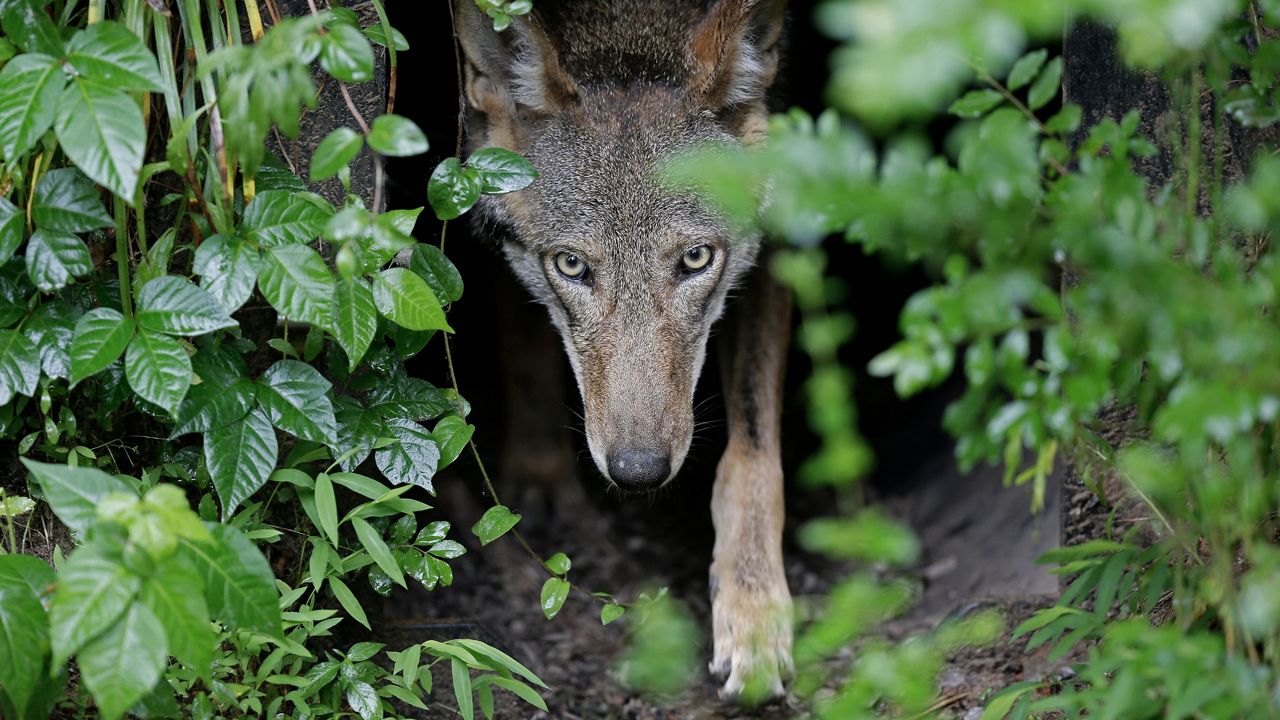An endangered red wolf was hit and killed by a vehicle in eastern North Carolina in June. The wolf’s five pups likely died, as their survivial relies on both parents, according to the U.S. Fish and Wildlife Service.
The Center for Biological Diversity posted about it Tuesday afternoon, but did not say exactly when the pups may have died. The male red wolf was killed along U.S. 64 in East Lake, North Carolina, the home of the Alligator River National Wildlife Refuge and the only place in the world where red wolves may be found in the wild.
“Red wolves are monogamous and mate for life, and both parents participate in caring for their pups,” wildlife officials said. “After the death of her partner, Chance — the mother of the pups — was likely unable to feed and care for her pups by herself.”
Less than 20 red wolves remain in the wild, according to the U.S. Fish and Wildlife Service, and five other red wolves were killed by cars in the last year.
The Center for Biological Diversity and its partners are leading a campaign to build wildlife crossings in the red wolves’ habitat.
In December 2023, the U.S. Fish and Wildlife Service published the 2023-2024 release plan. The plan details efforts to increase the red wolf population in eastern North Carolina.
The red wolf was first listed as “threatened with extinction” under the Endangered Species Preservation Act of 1966 in 1967, and the animals are currently listed as an “endangered species” under the Endangered Species Act of 1973.
Spectrum News 1 reached out to the U.S. Fish and Wildlife Service for comment:
"Based on extensive monitoring, using multiple monitoring methods, there is no indication that the litter born to 2413F (the female red wolf) and 2444M (the male red wolf) survived after the mortality of 2444M (the male red wolf) on Highway 64 in early June. Pup survival is always a concern after the mortality of one of the breeding pair, particularly red wolves with their first litter, such as was the case with this pair. No carcasses have been found to confirm this," Jennifer Koches with the U.S. Fish and Wildlife Service said.



